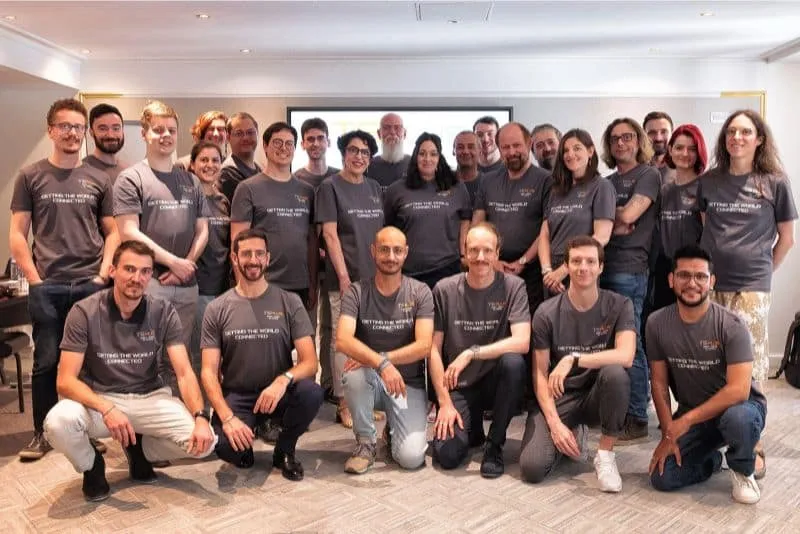Our society is maintained by information: information about who we were, who we are, and in some cases who we will become. We live in the Information age, a time where movement of information is faster than physical movement. Some say that we live in a new type of society called an Information Society. In it, the creation, distribution and manipulation of information has become a significant economic and cultural activity.
Matthew Lesko, a columnist, made this point clear when he wrote: "Information is the currency of today's world.". The 16th century English statesman, Sir Francis Bacon proclaimed wisely that "knowledge is power". His words echo today in the familiar truism, "information is power." The problem with that is that as a consequence, information also needs protecting and treating with care.
Information, Corporate or Private, Needs Protection!
In our lives today we experience how the personal information and corporate data that we keep, that we share and that we lose, moves us through a waxing and waning dance of power and powerlessness. Keep your information safe and you protect your home, your assets, your family and maybe even your life. Share your information and in return you hope to receive valuable goods and services. Lose your information, and the things that you enjoy and love can come crumbling down around you. The same goes in the corporate world, if not worse.
It does not matter whether it is corporate or personal, whether we call it data or information, it remains precious. For those reasons and more, protecting your IT devices and credentials is essential. Especially as with TSplus solutions are on hand at affordable prices.
Where Some of the Dangers Lie Regarding our Information and Data
Today, instead of on paper, most of our private information is stored in electronic format, on hard drives. This technology allows our world to do business as never before imagined. Much of business is faster, less expensive and requires far less labour than even one generation ago. However, throughout history we discover that technological advancement has a price.
Pollution and stress invade our environment and often our bodies. Additionally, the loss of certain skills once familiar drives us toward a dangerous dependency. Now high-tech scam artists and thieves prey on victims around the world at the speed of light and neither needs to be awake for the crime to occur. So, with these things in mind, we are moved to the realization that now is the time for each of us to examine the state of, and the danger to, our personal and corporate information.
Private and corporate information is vulnerable in two ways. It is vulnerable to loss and to theft. We can compartmentalize storage locations into two frameworks: local computer storage and online storage. These frameworks each have their strengths and weaknesses.
Physical and Virtual Threats to Information Require Combined Defense
Your local, offline information can be stolen by someone breaking into your building, car or wherever you keep your computer. Your data can also be destroyed by a hard drive crash, a fire or flood. However important, can still be difficult and time consuming to keep consistent, daily backups of your hard drive then store them at a location other than the device you are backing up.
Although the Cloud does help immensely, there are still misgivings in this area. Moreover, you can never be sure if your computer is at this very moment infected with spyware, adware, trojans, back doors, key loggers, bots or viruses. Sadly, each one is capable of taking control of your computer and sending your valuable, "non-public" information from your hard drive to anywhere in the world. We believe running certain of our software products takes a big step towards keeping these threats at bay.
The Cloud as a Start for Keeping Our Data and Private Information Safe
Many people enjoy keeping notes and documents online. Indeed, every day, people are discovering the convenience of having their thoughts, projects, to-do lists, diaries, customer lists, essays and so much more available from any computer in the world. Business-people, real estate agents, sales-people, house-parents, IT agents, academics, etc. are now getting more work done more efficiently. All this thanks to the wellspring of online document authoring sites and shared access to documents.
Privacy and the Great WWW - or Who Can See and Use Our Data
Now freed from the task of daily backups and concerns about loss and theft due to an infected computer, only one thing stops online document authoring and storage from being the perfect solution: privacy.
Unless you see that the address of the website, you’re on begins with the five letters HTTPS, your login ID and password are sent in plain text through unknown places over the Internet. What's more, your documents and everything you type are available to be seen, captured and used by criminals and scam artist devious enough to use that which was supposed to be private.
HTTPS as Another Good Step Along a Winding Route
Once your information is on the remote computer, do you know how your data is stored? Do you know who has access to it? To paint some worst case scenarios, perhaps it’s a computer technician who think it’s fun to read about other people’s lives and secrets. Or perhaps it’s someone who would sell information on the side to make a little extra money.
You have to trust someone, even though you just can’t know. And unfortunately, not all sites seem to care enough about privacy to seek ways to actively prevent privacy issues from happening. Anyhow, encrypted doesn't mean someone can't listen in or steal the conversation by pretending to be the other party.
Growing Data Privacy Challenges Met by Increases in Information Security
However, some websites do try to address these issues. Browsers, email and other all sorts of service or product providers are increasingly secure to meet the growing cyber-security challenges.
Indeed, it is becoming easier to securely move your data and documents over the Internet, encrypted by the same methods used by financial institutions and the like to move their sensitive data. If necessary, it is reassuring to be able to encrypt documents at the same level used by governments for top-secret documents.
Finally, unique, multi password systems also exist, such as our very own 2FA set-up, providing a further layer of security and privacy. With these sort of measures in place, we can rest easier.
To Conclude on Keeping Our Information Safe and Secure
If you have electronic information that must be protected from the two threats to your data: loss and theft, then do take steps to be safe. TSplus Advanced Security will be a valuable step along the way and two factor authentication a plus that should not be ignored.
Other than that, remember (and remind those around you) to be careful with passwords and choose them well to avoid them being easy to crack. Finally, be mindful of where you leave any data that needs to remain private as well as which sites you visit.









)


)
)
)
)



